#18. Green Tea
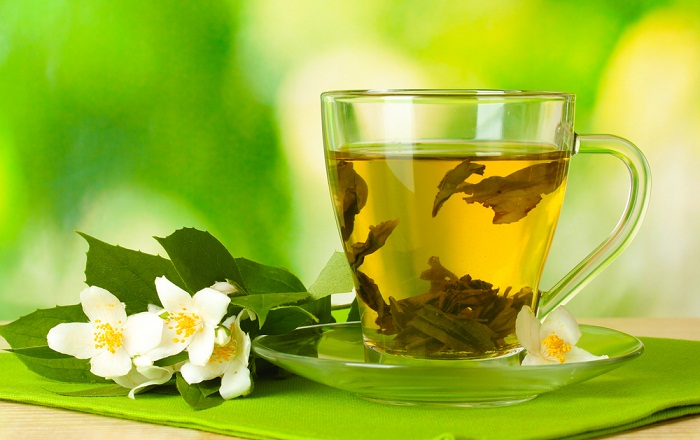
Sponsored Links
Green tea leaves are first harvested and then allowed to dry up. No oxidation is involved in the process. This makes green tea the best choice for tea drinkers, particularly if they are looking to improve their heart health. Just one word of caution, don’t spoil the benefits by adding sugar to your green tea.
A series of clinical studies conducted on the effects of drinking green tea have revealed that the habit helps in lowering the levels of triglycerides and LDL (bad) cholesterol. Green tea is a rich source of powerful antioxidants, one of which is EGCG or epigallocatechin gallate. EGCG is known for preventing atherosclerosis or plaque buildup in arteries.
#17. Oranges
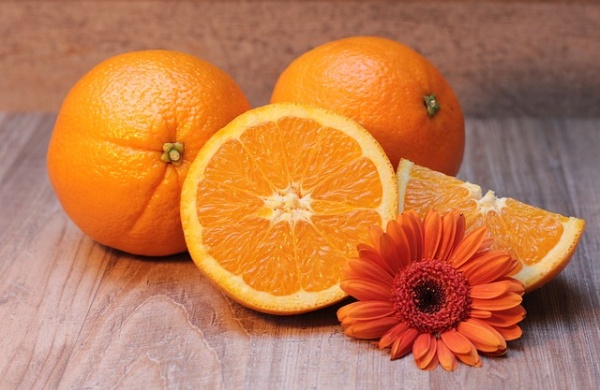
Orange contains a highly soluble fiber called pectin, which acts like a large sponge and sops up cholesterol sourced from different food items preventing its absorption.
Pectin also neutralizes galectin-3, a protein known to cause heart tissue scarring. The high potassium content of orange, on the other hand, counterbalances salt and thereby helps in keeping blood pressure normal.
#16. Oatmeal
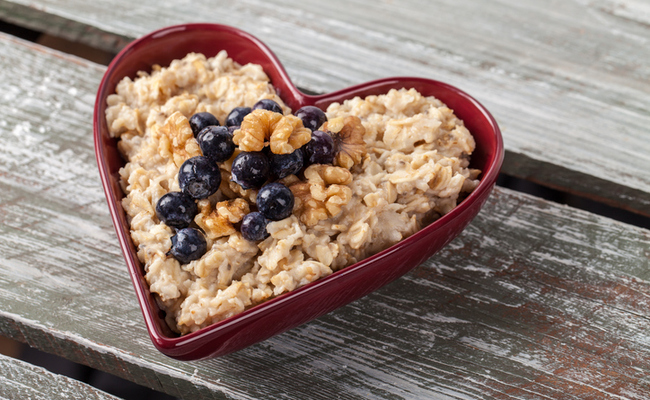
Oatmeal is a rich source of potassium, folate, and omega-3 fatty acids, each of these nutrients are known for improving heart health. As a result of being filled with fibers, the superfood is also capable of lowering the levels of LDL cholesterol aiding the process of keeping the arteries clear. For maximum benefits, you should eat steel-cut or coarse oats instead of the instant varieties. That’s because coarse oats contain a higher quantity of fiber.
#15. Whole Grains
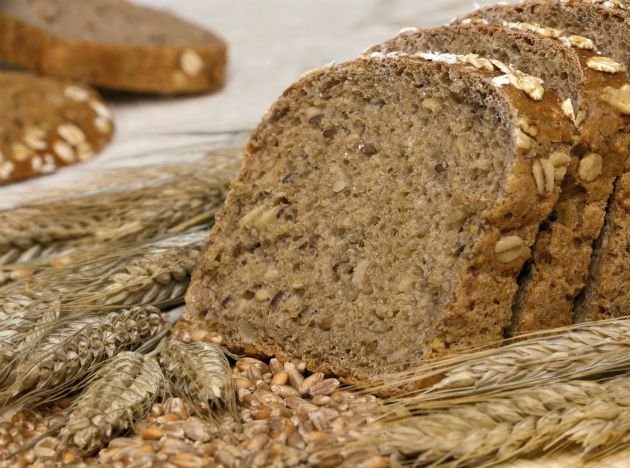
Individuals who consume lots of whole grains are usually leaner and remain at much lower risk of developing heart disease compared to people who don’t consume whole grains. This happens because of the high quantity of phytosterols, phytoestrogens, and antioxidants found in whole grains. Fibers found in whole grains also play a major role. A study conducted by researchers from the Harvard University revealed that people consuming a diet rich in fiber have 40% lower risk of having heart disease than people on low-fiber diets.
#14. Banana
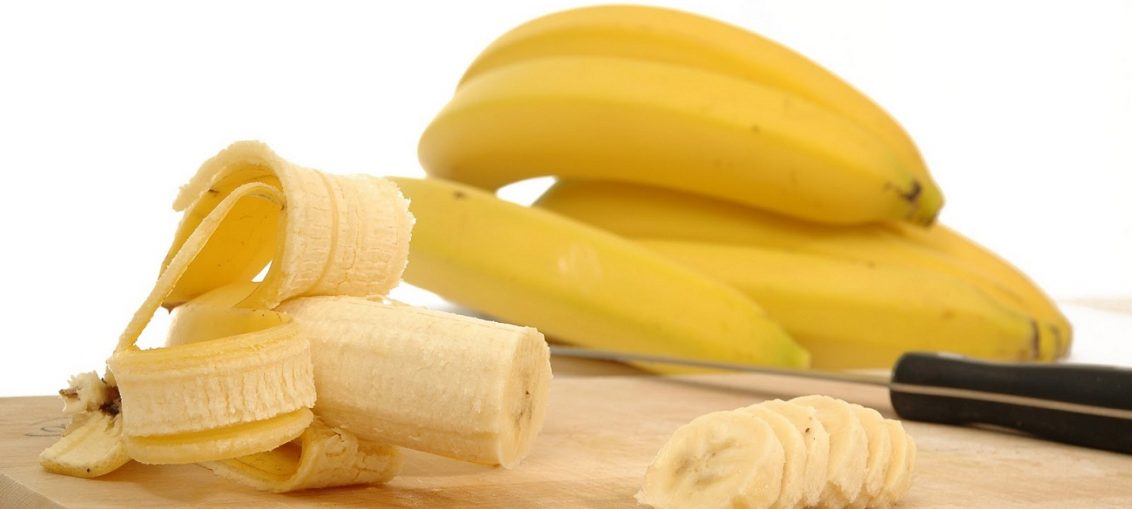
A single banana is capable of delivering 600 mg potassium, a mineral known for decreasing blood pressure. Having normal blood pressure is crucial for having a healthy heart.
#13. Wine

Alcohol, irrespective of its type, is known to increase HDL or good cholesterol level in blood. However, wine, more particularly red wine, is known to have additional benefits. Red wine contains polyphenols, which help in keeping our blood vessels flexible reducing possibilities of unwanted blood clotting. However, heavy drinking should be avoided as that would end up damaging your heart.
#12. Tomatoes
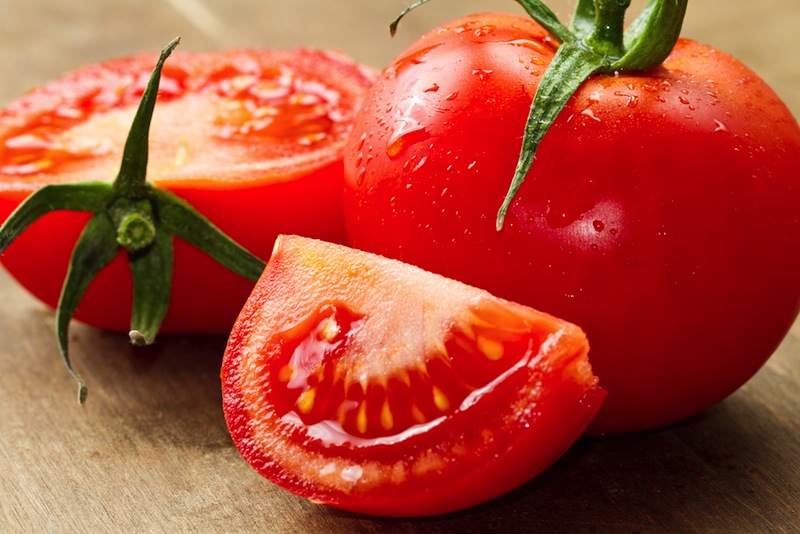
Tomatoes are rich sources of fiber, potassium, vitamin A, and vitamin C. In addition, they also contain lycopene, an agent known for working along with other minerals and vitamins to enable disease prevention. Studies conducted over the years have shown that all these nutrients found in tomatoes help in preventing cardiovascular disease. Although the levels of vitamin C in tomatoes reduce after cooking, the levels of lycopene are usually higher in cooked tomatoes. As a result, cooked tomatoes offer greater health benefits.
#11. Swiss Chard
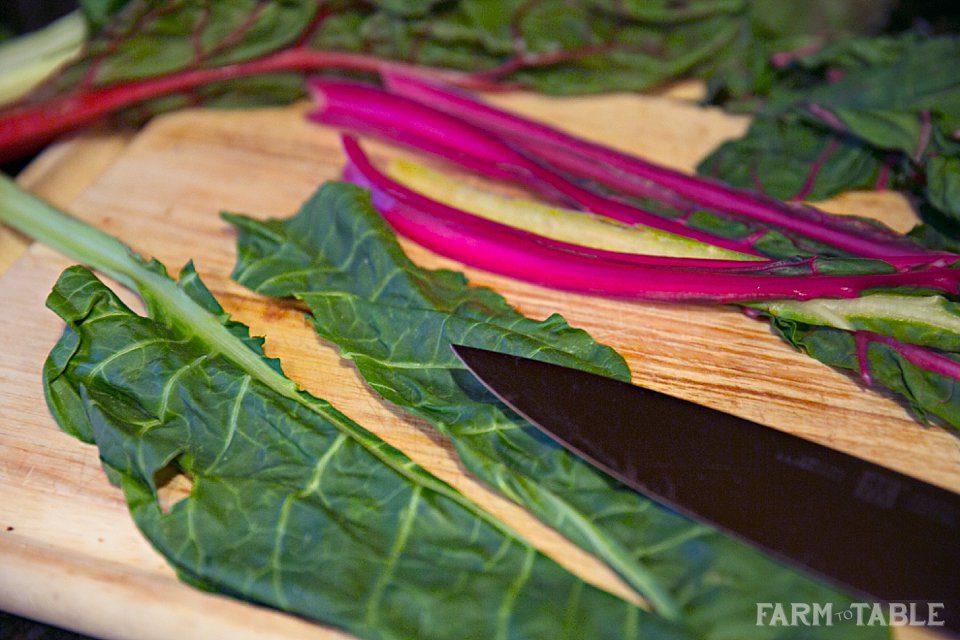
Swiss chard contains potassium and anti-inflammatory antioxidants. Together, these nutrients contribute to lowering stress on our cardiovascular system and blood pressure.
#10. Dark Chocolate
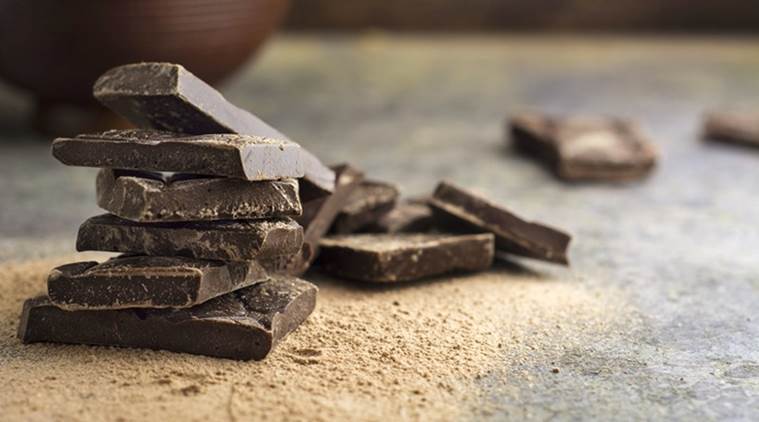
Cocoa, the main ingredient of dark chocolate, contains high levels of compounds known as flavonoids. These compounds are known to increase the flexibility of our blood vessels, which is turn keeps our heart healthy.
Sponsored Links
#9. Salmon
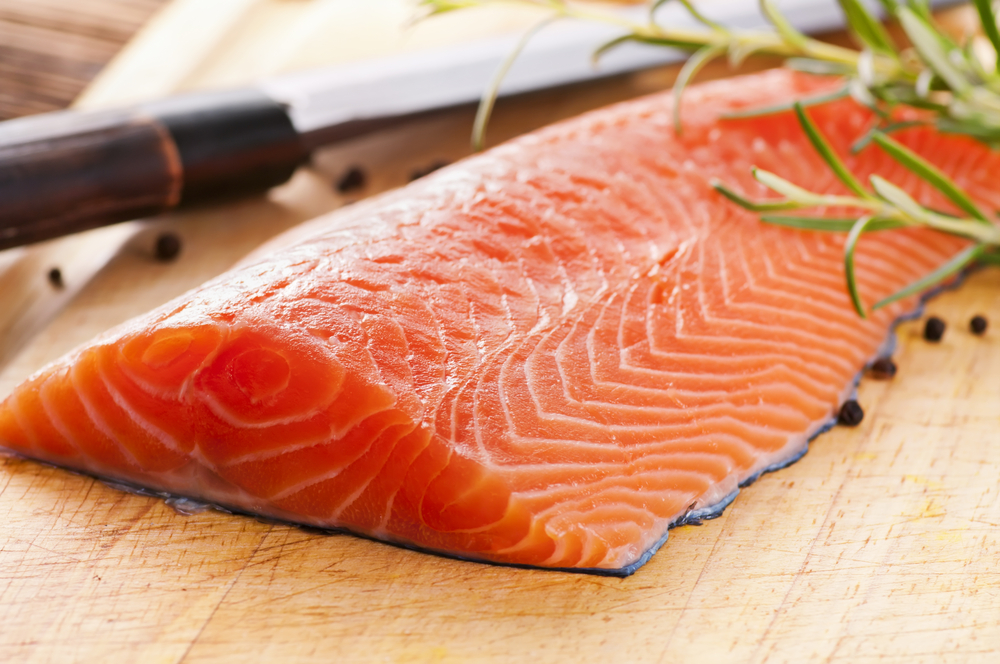
Most cold water fish including salmon are rich sources of omega-3 fatty acids and protein. According to experts at the American Heart Association, eating salmon along with other food items rich in omega-3 twice per week is essential for having a healthy heart.
#8. Sweet Potatoes
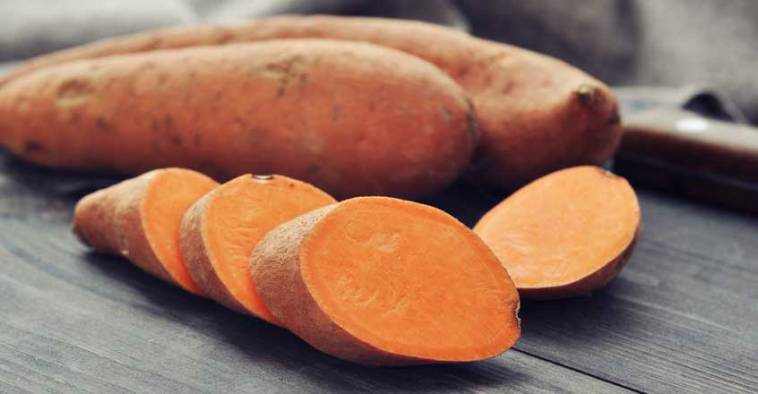
As a result of having high levels of potassium, sweet potatoes are capable of reducing blood pressure through maintenance of fluid balance in human body. In addition, Potassium is also an electrolyte and plays a major role in regulating our heartbeat.
#7. Walnuts
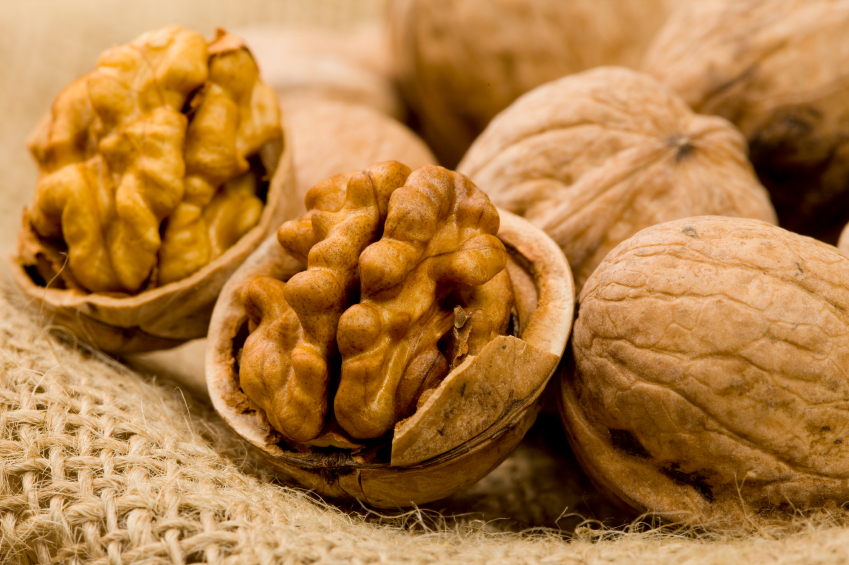
Walnuts can reduce one’s risk of suffering from cardiovascular disorders by lowering his/her bad cholesterol or LDL by 9 to 16 percent. These nuts are also known to reduce the diastolic blood pressure of a person by 2 to 3 mmHg, which again helps in keeping the heart healthy. Walnuts contain high levels of ALA or alpha-linolenic acid, an omega-3 fatty acid found in plant-based products. ALA, being an anti-inflammatory agent, might lower concentration of CRP or C-reactive protein in people with high levels of LDL cholesterol.
#6. Almonds
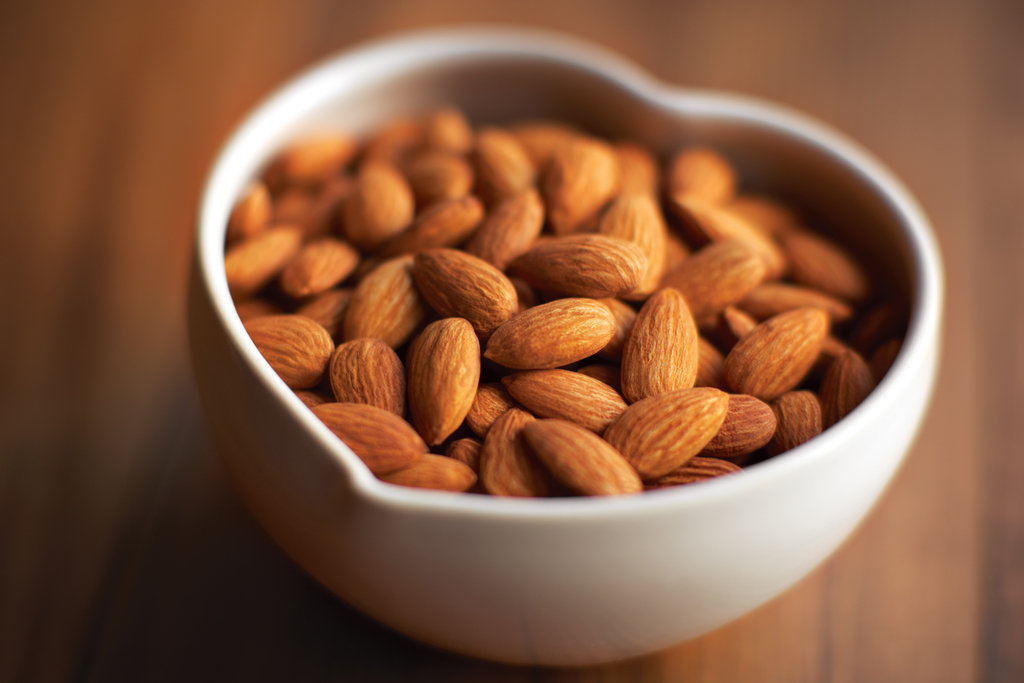
Plant sterols found in almonds stop our system from absorbing cholesterol from the food we eat. In addition, the unsaturated oils present in the nut promote HDL production and reduce LDL production in the liver. These changes automatically improve our heart health.
#5. Asparagus
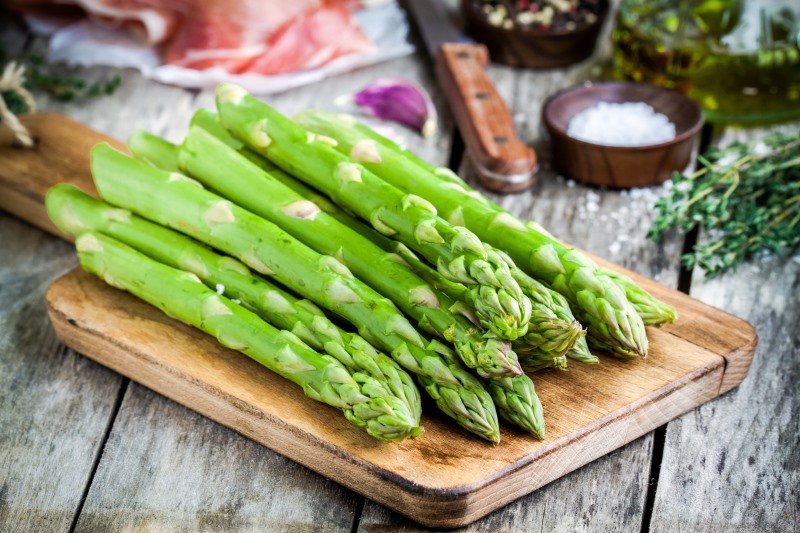
People with high level of homocysteine have greater chances of suffering from heart disease. Findings of a recent study have shown that people, whose homocysteine levels are above average, have 1.7 times greater chances of developing some form of coronary disorder than others. In addition, they also have 2.5 times greater chances of suffering a stroke compared to others. Asparagus contains high level of vitamin B, a nutrient boasting the ability to reduce homocysteine levels in the human body significantly.
#4. Beans
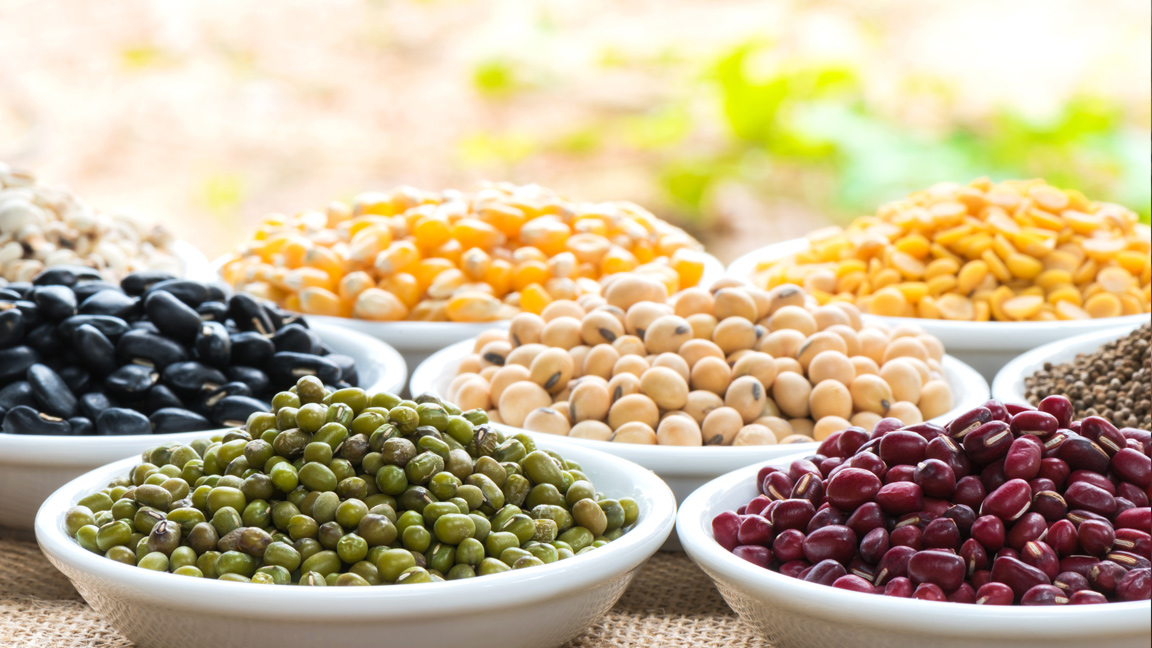
Beans are rich in soluble fiber, which work by binding cholesterol precursors and cholesterol in our digestive system and later eliminates them from our system. This stops cholesterol from entering our blood and causing plaque formation in our arteries. Consumption of beans is also known to reduce oxidative stress, inflammation, and blood pressure, three major causes of cardiovascular disorders. Some of the heart-healthy nutrients present in beans are anthocyanin, terpenoids, and polyphenols.
#3. Broccoli
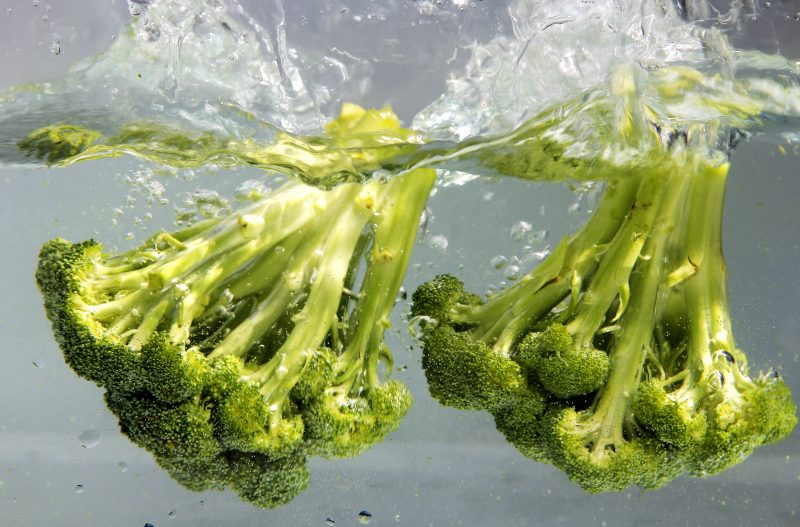
Sulforaphane, a major nutrient found in broccoli, is known to promote the production of a protein that stops plaque buildup in our arteries. In addition, the vegetable is also a rich source of other heart-healthy compounds like isothiocyanates and glucosinolates.
#2. Apples
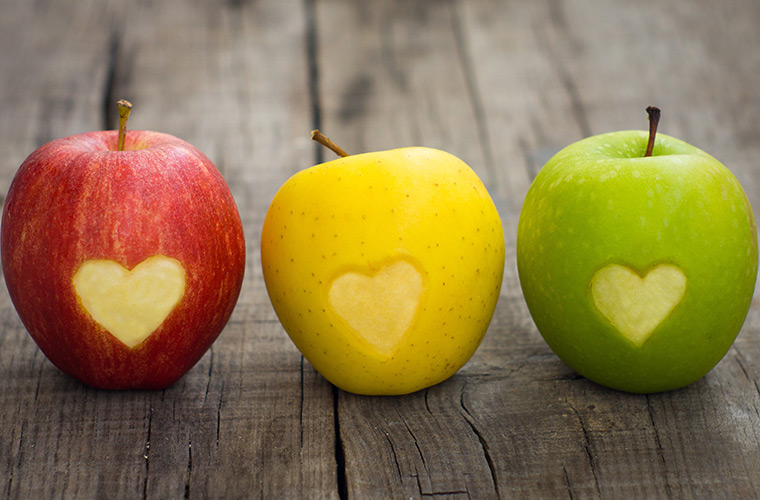
The number one reason for which apples are often recommended to heart patients is the high level of soluble fiber present in the fruit. That’s because soluble fiber has the ability to reduce blood cholesterol. In addition, apple also contains epicatechin, a flavonoid boasting the ability to control blood pressure.
#1. Berries
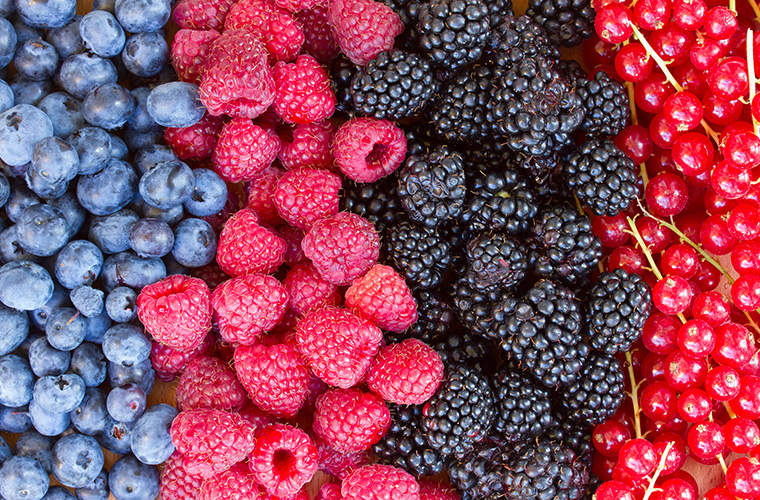
Sponsored Links
The skin of berries contains an antioxidant called anthocyanin.
Anthocyanins are known to increase HDL and reduce LDL and thereby improve our heart health. Berries are also rich sources of other antioxidants known for improving cardiovascular health; these include quercetin, ellagic acid, tannins, etc. For enjoying maximum benefits of having berries, you should consume different varieties of berries together.
